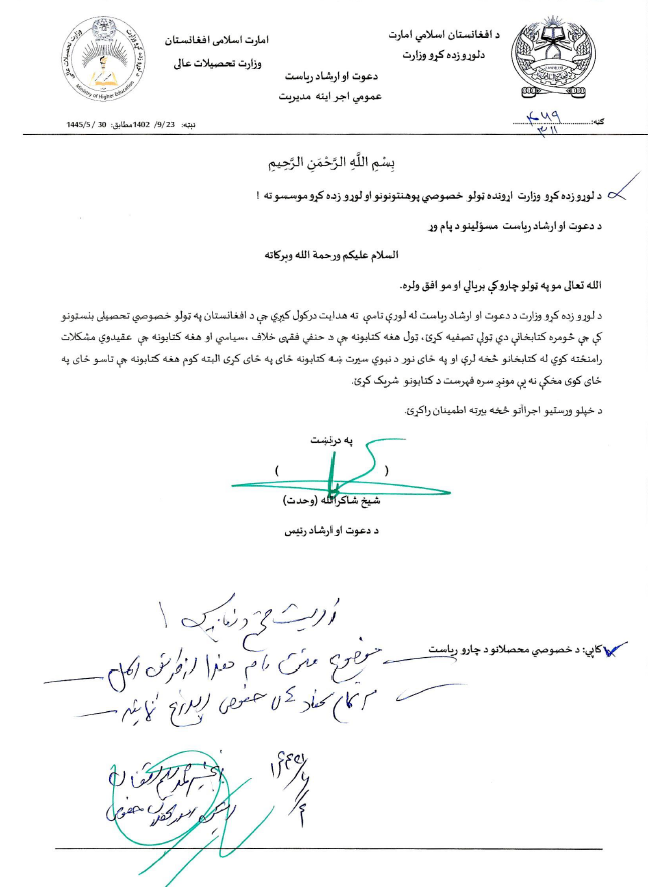The Taliban, through the Ministry of Higher Education, has issued an order for the review and removal of books from private university libraries that contradict Hanafi jurisprudence, political books, and others deemed ideologically problematic. This directive was confirmed by a letter from the Ministry, a copy of which was obtained by Amu.
Shukrullah Wahdat, head of the Department of Invitation and Guidance under the Taliban’s Ministry of Higher Education, signed the official letter. The directive states, “The Directorate instructs the cleansing of libraries in all private institutions in Afghanistan, removing books against Hanafi jurisprudence and those causing ideological issues.”
The order, which has raised concerns about intellectual and ideological freedom, was relayed to Amu by independent sources and a Ministry insider.

Students and Kabul residents have expressed dissent, emphasizing the importance of diverse educational materials. “We request the government to allow access to a broad range of books. Sole reliance on Hanafi jurisprudence is insufficient for comprehensive education,” remarked a student from Kabul.
Fazl Hadi Wazin, a political affairs analyst, criticized the move as unscientific and against Sharia law, academic values, and reason. “Removing books outside Hanafi jurisprudence, including interpretations, Hadith, and other Islamic jurisprudence, is unacceptable,” Wazin stated.
This development coincides with reports of minority rights violations in Afghanistan and concerns raised by the United Nations Special Envoy for Afghanistan about the country’s deteriorating human rights situation.
In a recent meeting, the head of the Taliban’s Ministry of Higher Education claimed that all Afghans follow the Hanafi religion, a statement seen as an attempt to marginalize other religious practices in Afghanistan





